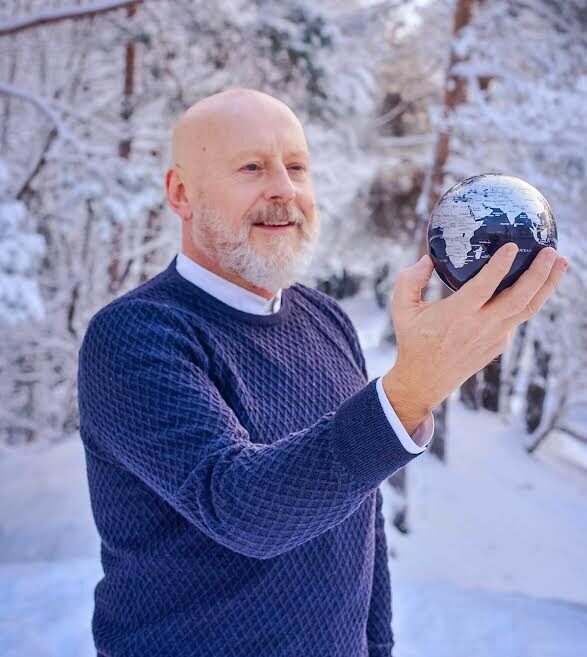Aleppo, war and earthquake does not stop the people
We did not know what to expect when we arrived in Aleppo. What would the city look like after years of war and the recent earthquakes? In the countryside, we had seen so many damaged villages, and when we started to approach the city, it began to become dark, so we could not see much of the damage. The hotel was by the main square in the center, so when I looked out the following morning, everything looked perfectly normal; people were hasting around on their way to work. This trip to Aleppo was a part of my journey with Against the Compass from Lebanon to Syria.

The morning in Aleppo
We started to walk around town, and we did not have to walk far before we began to see damaged houses. Burned-out blocks of flats and other hoses just collapsed in the earthquake. We also visited Aleppo National Museum, which actually opened for the first day after the earthquake this morning. You could see large cracks in the walls in many places; it does maybe not have the most extensive collection, but it was still interesting to see. The old citadel museum was closed because of the recent damage.

Almost anywhere you turn around in Syria, you see pictures of President Bashar al-Assad. I know this is quite usual in countries where despots rule. We were told he does not like this, and his supporters put them up. Whether this is right or not, I do not know, but at least it does not look like he has put much effort into stopping it. On some buildings, you find vast posters of him.

Jebeili Soap factory
On our walk around town, we visited a soap factory. The Aleppo soap is well known far outside Syria, but because of the current restrictions, it is difficult for them to sell worldwide, but they find some loopholes through Lebanon. We saw them boiling the soap and were told how they made it as they have done for decades. I bought some sope with me; it smells so lovely, and I love it, so I am not looking forward to running out.

At the soup kitchen.
Our guide asked us if we wanted to go and visit and maybe help in this voluntary soup kitchen. We were a little bit uncertain how that would be received. One in our group declined, but the rest of us said yes. Most young women did the work, and we did not meet the clients, just helping pack up the food. We were slightly nervous about how they would look at us, but they were so happy; some spoke some English and asked questions. I have never been asked so many times to take selfies before, and it was a pleasant experience, and it looked like they enjoyed meeting us.

Time to leave Aleppo
One of my fellow travelers had a birthday on the last night in Aleppo, so we all went out and had a lovely dinner together. The following day we were heading for Damascus again, and since the breakfast in the hotel was not at the same standard as the one we got in Damascus, we decided to skip the breakfast and make another stop on our way. We were going to drive just outside Homs, so we asked if managing a short drive there was possible.

Homs
We could remember hearing about Homs on the news during the war, and when you hear a name many times, you feel that you know something about it. This was absolutely the most damaged city we drove into during our days in Syria. There were not many whole houses to see. But in the center, people did usual things such as grocery shopping, and kids played. Not much had been built up again, but mosques and churches had been reconstructed and entirely in use. Good to have the priorities right.

Back in Damascus.
When we returned to Damascus, we did some shopping and still saw some scrines and places of interest. In the evening, we went to a typical Syrian restaurant, with the spinning dans Tanoura performed by a man and his son. We all agreed these five days had been fantastic and so educating. I recommend anyone who wants a different destination and to have the opportunity to visit this amiable and warm country.








